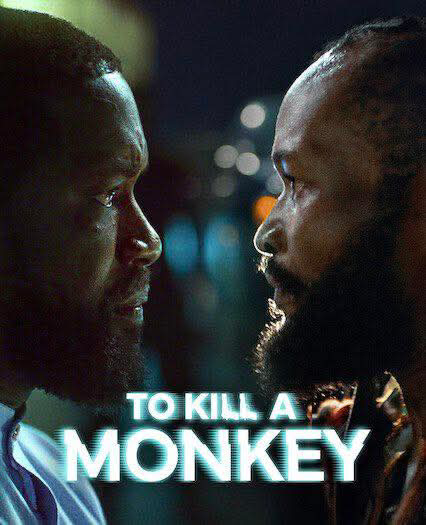From 2016’s ‘The Wedding Party’ to 2021’s ‘King of Boys’, Adetiba has been a flag bearer of African cinematic excellence. With ‘To Kill A Monkey’, she sought to shine a light on poverty, cybercrime and the moral quandary associated with facing difficult choices.
The eight-part Netflix series tells the story of Efemini (William Benson), a poor graduate working in a restaurant, up to his neck with debts and responsibilities. His wife, Nosa (Stella Damasus) was in labour with triplets. His mother was in the morgue - he had no funds for a burial. He has taken loans from his work place and can’t just seem to catch a break. As one of his colleagues told him, “God does not like you.”
These were the stakes Kemi Adetiba set for our protagonist: sky-high with hurdles upon hurdles. Seems too much? Wait till you hear the story of the average poor Nigerian. Efemini’s story mirrors that of millions of poor people, struggling in cities, unsure of their next meal.
A chance encounter with Oboz (Bucci Franklin) - an ex-cultist whose life he saved in Benin - who now runs several cells of young cyber-criminals, will prove life-changing. This transformative encounter comes at a steep price. Efe will have to drop his morals and use his book-smarts, once set on developing an app to prevent fraud, to exploit the same vulnerabilities. What follows was a blissful chaos - a meteoric rise followed by a combustible fall.
The script was outstanding - it wove together several themes: morality, poverty, loss, grief, mental illness, cybercrime - into one beautiful tapestry. Cinematography was brilliantly done. Costuming was on point - the masks added an air of mystique and would have benefited from some back story. The choice of music for the score was exceptional - each song conveyed the emotions on the screen.
The casting of this series was perhaps, the best thing to happen to it. One can tell that a lot of intentionality went into selecting the actors and every single actor shone perfectly in their roles.
Bimbo Akintola drew the audience into the depths of her grief as Inspector Ogunlesi. Stella Damasus made a brilliant comeback to our screens as Nosa. Chidi Mokeme was outstandingly brutal as Teacher. Daniel Etim Effiong was convincing as a doctor. It was also the best Lilian Afegbai’s performance I’ve seen. Sunshine Rosman gave a memorable performance as Sparkles.
Bucci Franklin (Oboz) and William Benson (Efemini) both gave us career-defining and ovation-worthy performances. Bucci played to perfection the loud and obnoxious Oboz, complete with the bad-boy image and ‘doings’, capped off in immaculate Pidgin-English with sprinkles of Bini language. William Benson showed remarkable range and shone brilliantly - whether as a vulnerable, broken man or as a charming, successful Sugar-Daddy.
There were some questionable moments in the series - like the relationship between Sparkles and Teacher and how it tied to everything. Also, how did Inspector Ogunlesi get back on the case so fast from suspension? Somehow, the ending appeared way too convenient at some parts, but the plane was landed safely.
That said, the positives in ‘To Kill A Monkey’ greatly surpass any negatives and it makes for an engaging and delightful watch. The cliffhangers worked well and ferries the audience to the end. Adetiba ended the series brilliantly and seems intent on keeping the audience guessing. What happened to Efemini?
That question, what happened to our protagonist, is both a literal and metaphorical one. We saw an ethical, upright man - an Assistant Jesus, as Oboz would say - transform before our eyes. Poverty is a disease, a cankerworm that eats into the fabric of our society. The delectable Sparkles said it best. “Poverty na bastard.”
Nigeria, being the poverty capital of the world, is not a badge of honour. It is a troubling statistics that should keep us up at night. Poverty puts people in tight spots with impossible options. When people’s backs are against the wall, they can do anything to survive. Including bad things.
‘To Kill A Monkey’ is a message to our leaders to find a timely solution to Nigeria’s poverty problem. Poverty has a direct correlation with crime and creates monsters. The only way to ensure a crime-free society is to pull millions of people out of poverty.
As a work of art, ‘To Kill A Monkey’ is a visual dissertation on the Nigerian society outlining the hurdles poor people face and how poverty erodes ethics and morality.
Executed to perfection by a shining cast and crew, it is another Nigerian masterpiece that tells our stories the proper way they should be told - authentically and with flair.
9/10
©️Kelvin Alaneme, 2025.



Post a Comment